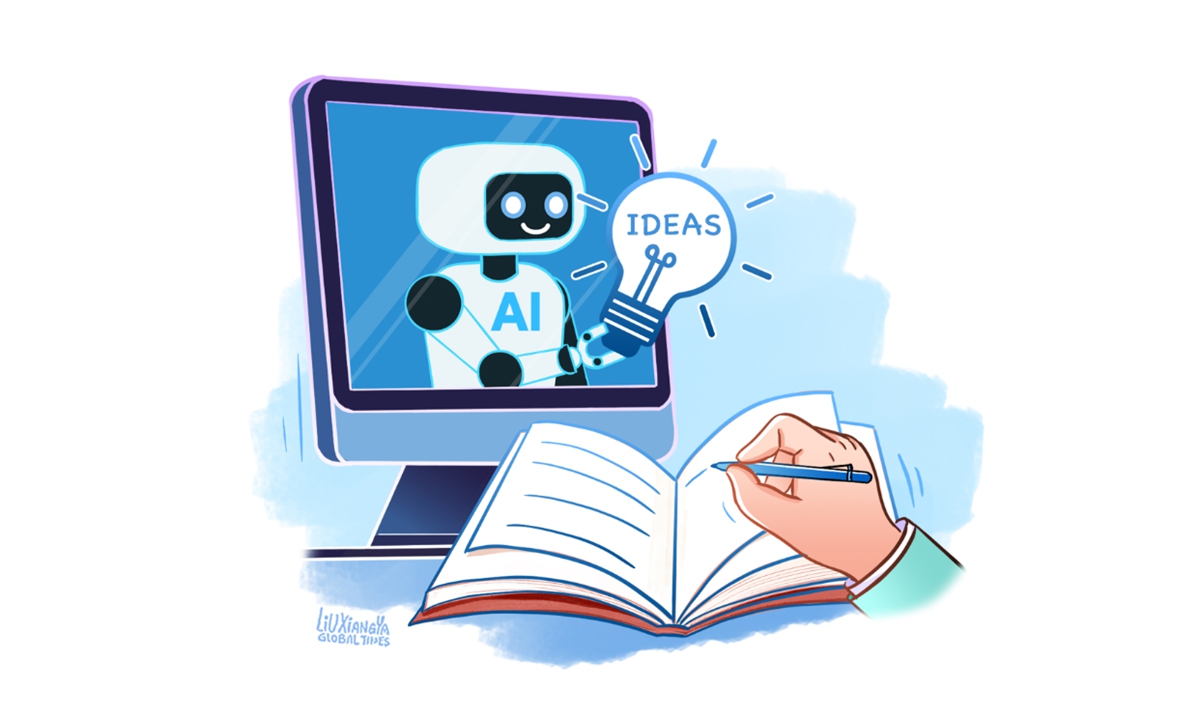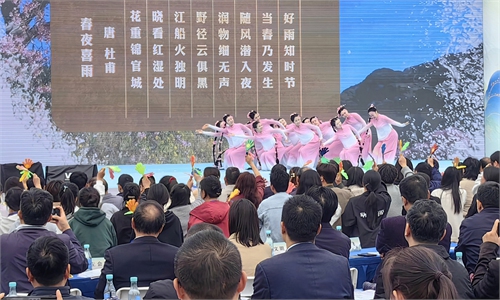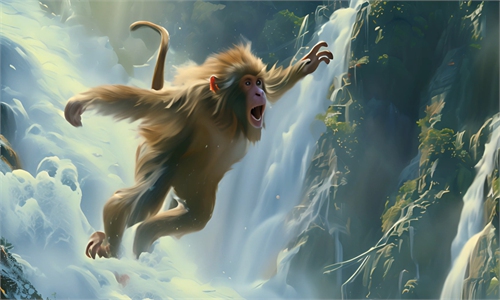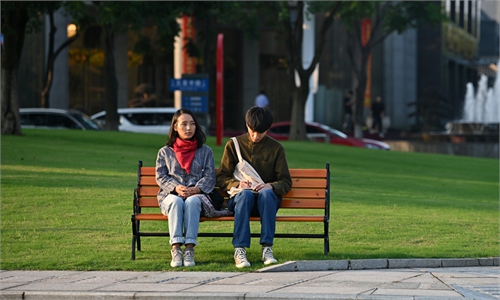ARTS / CULTURE & LEISURE
Can AI-created literature touch people’s hearts?

Illustration: Liu Xiangya/GT
When speaking about AI and its role in "literary creation" during a recent event held by the China Writers Association, renowned writer Wang Meng said that without a genuine "individual" and "self-awareness," it is impossible for AI to produce works that truly resonate with people's hearts.
His remarks renewed discussions about the quality of AI-generated literary works and how AI can bring new opportunities to writers, helping expand the boundaries of creative inspiration.
Literary creation cannot be separated from life. Choosing to engage in literary creation means choosing to reach people's souls through language. It is not just a skill but also a reflection of the writer's character and vision, the 90-year-old Wang noted on Monday while encouraging young writers to be bold in their originality and create works that truly belong to them.
Zhao Lihong, a Chinese poet and former vice chairman of the Shanghai Writers Association, told the Global Times that true literary creation is rooted in personal experiences, unique emotions, and individuality, which AI cannot replicate.
Zhao acknowledges the advancements of AI in recent years, particularly in generating text and poetry. He views AI as a powerful tool for research and information collection as AI can analyze and synthesize vast amounts of online content.
Despite AI's capabilities, Zhao does not feel threatened as a writer. "AI lacks the ability to authentically express deep, personal feelings or craft narratives with a writer's unique perspective," said Zhao.
Zhao also expressed concerns about the potential misuse of AI in creative fields. Mediocre writers might rely on AI to produce content, passing it off as their own, which could blur the line between human and machine creativity. He sees this as problematic for the integrity of literary creation, particularly in poetry, where AI-generated works could easily mimic stylistic elements but remain devoid of genuine emotion or originality.
Recently, a farmer poet named Lü Yuxia from East China's Shandong Province has gained popularity on social media for her "rustic poetry." In response to some netizens questioning whether she uses AI to write her poems, Lü said, "What I want to say is that many farmers have dreams. My poetry mainly comes from rural life. AI doesn't understand my life and cannot write rustic poetry."
Lü turned her life of labor in the fields into poetry, captured it in videos shared online. Though her words are simple and her stories drawn from everyday life, each line carries her genuine emotions and heartfelt experiences. Spring, for example, is the ripples of time's endless ring, in one of her poems.
Lü's poetry views the world and life through a rural lens, offering a poetic expression of countryside living, Ruan Desheng, vice chairman of Chizhou Federation of Literary and Art Circles in East China's Anhui Province, told the Global Times.
"With its clear themes, simple and authentic language, and deep connection to everyday life, poetry naturally resonates with people and cannot be replicated by AI," Ruan said.
Da Ni, a best-selling novelist, said AI-generated fiction largely follows repetitive patterns and lacks unique imagination - a key issue that Da Ni observed during his creative process.
The novelist told the Global Times that AI tools are not yet capable of producing full-length novels.
"I'm not worried about being replaced, even though many online novel-sharing platforms have become more open to AI-generated content," he said.
"It is similar to the relationship between painting and photography. History has shown that the two can coexist, with painting evolving to become even more refined."
Technology has never been the enemy of the humanistic spirit. When the camera was invented and widely adopted, the art world lamented, fearing it signaled the end of fine art. Yet, more than a century later, not only did cameras fail to replace painters, but a generation of legendary artists emerged. The continuous advancement of technology can help humanity create even greater art works.
While agreeing with Wang's opinion, Chinese writers can also embrace the opportunities brought by AI and explore how they can reach new heights with the help of technology.
Zhan Chenglin, a poet from Anhui who joined the China Writers Association in 2018, told the Global Times on Tuesday that he can learn from the objective commentary generated by AI but poetry creation is highly subjective, representing the creator's personal life experiences.
Another poet Zhang Hua, who participated in the 2025 Chinese Farmers Poetry Festival held in Chizhou, Anhui Province, in March, told the Global Times that he uses AI as a tool to learn writing techniques and use of imagery.
With many people sharing AI-generated content on social media, literary workers are faced with a fresh issue of maintaining the vitality of literature, and promoting the integration of AI technology with literary creation.
As Wang Meng said, literary works require the creative passion and unique style of the individual to truly touch the hearts of readers.
The author is a reporter with the Global Times. life@globaltimes.com.cn



